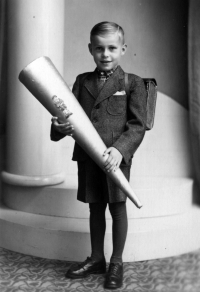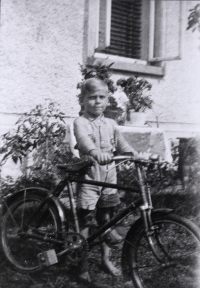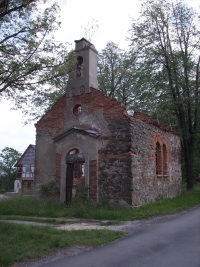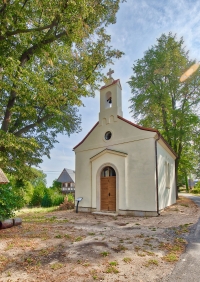You feel tied to the place you were born, but you can’t call it your home after deportation

Download image
Helmut Hempel was born on 14 August 1938 in the village of Uhelná (in German Kohlige, today part of Hrádek nad Nisou), after the annexation of the Sudety regions the village was administratively assigned to the nearby Václavice (Wenzige). His father Erich was originally from Saxony and despite spending almost his entire life in Bohemia, he had German citizenship. Helmut saw almost nothing of him during his childhood, because his father was conscripted in 1939 and after the war on his release from imprisonment in the United States, he never returned to Bohemia. Helmut started attending the German school in Václavice in September 1944, and it was only open until half way through April 1945, when almost everyone left. In Uhelná the looming surrender was embodied in retreating German soldiers, who spent the night of 5 to 6 May in the neighbour’s barn, under fire from a Soviet fighter plane. The Red Army arrived in Uhelná on 8 May 1945. After the army rapidly moved on, suddenly Czechs were in power and the Hempels, as the family of a German from the Reich, were among the first to be expelled on 16 June 1945. They went on foot across newly adjusted Polish territory all the way to German Zittau and a few weeks later they were forced to move again, this time by train. Up until 1946 they lived in the East German village of Pritschöna. After his release from American imprisonment their father Erich tried to cross into the Soviet Zone illegally, but was caught at the border and arrested for three days. Eventually their mother was more successful, crossing the border in the opposite direction with the help of a bribed smuggler in 1946. She and little Helmut crossed the small river dividing the occupation zones in Thuringia near the town of Fulda. Once more reunited, the family finally settled in Bavarian Warmensteinach, which was becoming a centre for work and living for Jablonec glassworkers, including Helmut’s uncle. Later on, Helmet also trained up to work in his uncle’s fashion jewellery factory and when he returned to Warmensteinach after a short student stay in Neugablonz (New Jablonec), he eventually he took over management of the company. In 1964 he married his wife who had also been expelled from Czechoslovakia as a girl. Mr Hempl visited his older sister Gerta (who was not deported due to her relationship with her future Czech husband) for the first time in 1966 and despite the language barrier still maintains contact with her children to this day.





